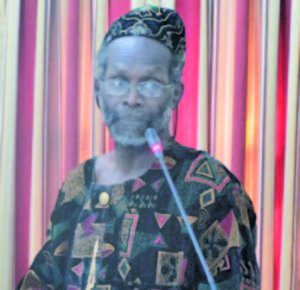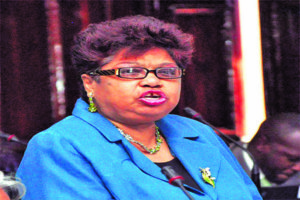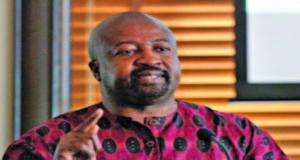By Jarryl Bryan
Citing instances of decisions being made at Cabinet without consulting the smaller coalition partners among other exhibitions of strong-arm politics, a Working People’s Alliance (WPA) executive member is of the view that coalition politics in Guyana has failed to live up to expectations.

According to WPA heavyweight Tacuma Ogunseye, leaders of the party owe it to their members to put their continued involvement in A Partnership for National Unity (APNU) on the agenda for serious discussion. He noted that there are concerns that the party’s time in the coalition has not done the party, and the country as a whole, any good.
“Relations with the WPA and the PNC/R in the APNU, on a number of issues, have been a serious problem. It has created a lot of internal tensions within the party, both at home and overseas. And I believe that during the last almost three years in Government, many people in the party, both abroad and home, have varying views as to whether the WPA’s presence in Government has been beneficial to the country and the party,” Ogunseye disclosed.
He made it clear that after observing coalition politics and the way it has played out in Guyana since 2015, he is convinced it has failed to live up to his expectations.
According to Ogunseye, coalition politics has involved the cabinet making and executing policies with the WPA party leaders ultimately being informed through the press.
“I am disappointed that in the APNU, the way in which the coalition has developed over the last three years leaves much to be desired. There is little consultation. Little forum for articulating concerns and views; and in any coalition, the groups form policies and the cabinet executes the policies that are designed by the parties.
“But the way in which matters have developed in this coalition is that the cabinet usurps both positions,” Ogunseye explained.
Ogunseye stressed that this is not how a coalition is supposed to work. According to him, a comparison with the PNC’s dealings with the WPA and with the Alliance for Change (AFC) shows that the latter party is shown more consideration than his party, and for obvious reason.

“The AFC will have to speak to what extent they are satisfied…(but) the AFC is in a position to make the Government collapse. It’s a strategic position, (and) they have to deal with them differently,” he explained.
Additionally, he noted that the AFC negotiated an arrangement, the Cummingsburg Accord, with APNU. He pointed out that the WPA was not afforded the opportunity to negotiate a formal arrangement for the 2015 elections. As such, only the PNC’s “moral decency” could hold it to the principles of coalition politics when dealing with the WPA.
In the meantime, Ogunseye noted that the WPA has been forced to accept collective responsibility as a party on issues it played little to no part in. Far from improving, he expressed concerns that things were getting worse.
“We don’t believe it is helping the coalition. The coalition is not getting better. We don’t believe it is helping the country, because the country is not getting the best demonstration of coalition politics. Coalition politics is gradually becoming the politics of the past.”
No concern
Meanwhile, PNC/R General Secretary Amna Ally has expressed unconcern to talk of the WPA breaking away. According to Ally, things were being blown out of proportion.
When contacted, WPA Executive Dr David Hinds dispelled any ambiguity about the party’s intention. He noted that contrary to Ally’s assertion, the party leaving has always been on the agenda, and its members have always been aware that the day may come when hard decisions would have to be made. Early talks of leaving, however, were suppressed in the interest of “the collective and country.”

“The strength of the Coalition is its (unity). Yet the Minister is saying that she is not worried that one partner is so dissatisfied that some of its leaders are raising the possibility of leaving. How can a spokesperson of a Government and Coalition with a tiny majority in the National Assembly not be worried that there is grave dissatisfaction within the coalition?”
But Hinds made it clear that the idea of a coalition party was much more popular with voters than the idea of the individual parties: the PNC, AFC and WPA. He made it clear that none of the parties could have achieved victory at the polls in 2015 on their own.
“The Coalition won the election in 2015 because a small majority of the electorate perceived that a coalition of parties stood a better chance of defeating the incumbent PPP,” Hinds explained. “And my knowledge of Guyanese politics tells me that any rupturing of that coalition would work to the disadvantage of the Coalition at the next election.”



